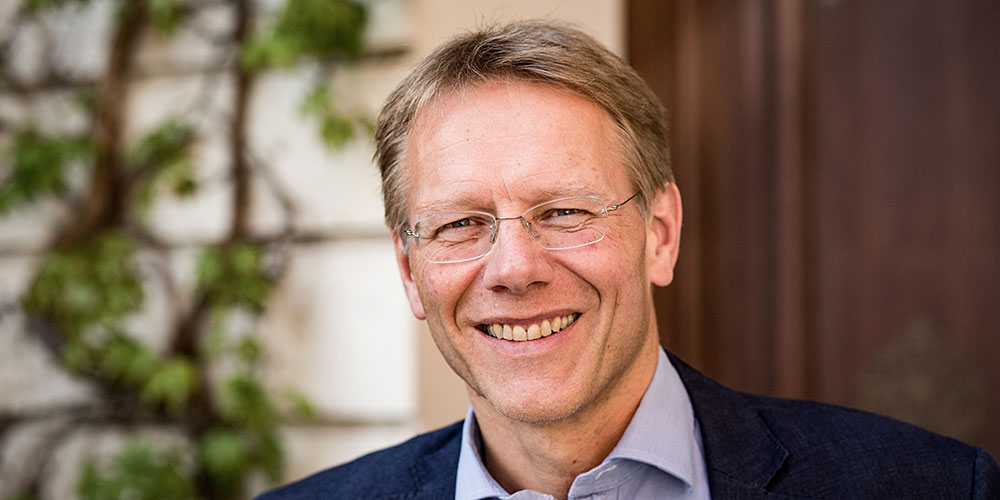An ambassador for German scholarship.
Thomas Maissen studied history, Latin and philosophy at the University of Basel. Today, he is the Director of the German Historical Institute in Paris.
When I finished university, why did I not stay in beautiful Basel, like most of my friends, where I could spend the summer drifting down the stream? Instead my wife and I did the one thing you should never do: Because of her job, we moved to beautiful Zurich, of all places, where I wrote my postdoctoral thesis and many historical articles for the “Neue Zürcher Zeitung”. Someone who is prepared to abandon Basel for Zurich must be capable of anything – and so it was that in 2004 we answered the call to move to beautiful Heidelberg. When our four children heard about the plan, they burned a German flag in our garden. In 2013, they were again unimpressed when we decamped to beautiful Paris. Now they are all at university – in Germany.
It is this Germany that I now represent at the German Historical Institute in Paris (DHIP), with just under 40 other colleagues. Like its sister institutes in London (1976), Washington (1987), Warsaw (1993) and Moscow (2005), the Paris institute, established in 1958, has its roots in the politics of reconciliation following World War II. The idea was that historical research in and with these states should create a new basis for shared understanding. Initially this was achieved by focusing on medieval topics, rather than the controversial area of contemporary history. However, the hosting of a major international conference at the DHIP and in Versailles to mark the 100th anniversary of the Treaty of Versailles in 1919 shows just how much common ground has been built up within scholarship and between researchers over recent decades, not just on methodology but in terms of their findings. Collaborations of this kind have become a matter of course normal and the fruits are reflected in the German-French History published by the DHIP, which will be completed shortly and consists of eleven volumes running from Charlemagne’s coronation as emperor up to the present day.
With its aim to bring historians together largely achieved, during my tenure the institute has placed a renewed focus on the internationalization of Germany’s humanities and social science sector, which is a policy priority for the German Federal Government. In concrete terms, this means that the institutes that make up the Max Weber Foundation are continuing with their previous bilateral mission but also becoming active in new regions. With German, French and Senegalese partners, we have established a joint research project in Dakar, to conclude in 2021. As part of this project, a dozen doctoral students and postdocs are studying the bureaucratization of African societies. Our focus will then shift to Ghana, where with the universities of Legon (Accra), Freiburg, Frankfurt and other partners we are setting up a Merian Institute for Advanced Studies in Africa, which up to 2030 will be dedicated to the topic of sustainability. So if you do leave Basel, you may find a wealth of exciting things to discover in beautiful Africa.
Thomas Maissen has been directing the German Historical Institute in Paris since 2013. He studied history, Latin and philosophy at the University of Basel, where he received his doctorate in 1993. He has been a professor at the University of Heidelberg since 2004.
More articles in the current issue of UNI NOVA.

